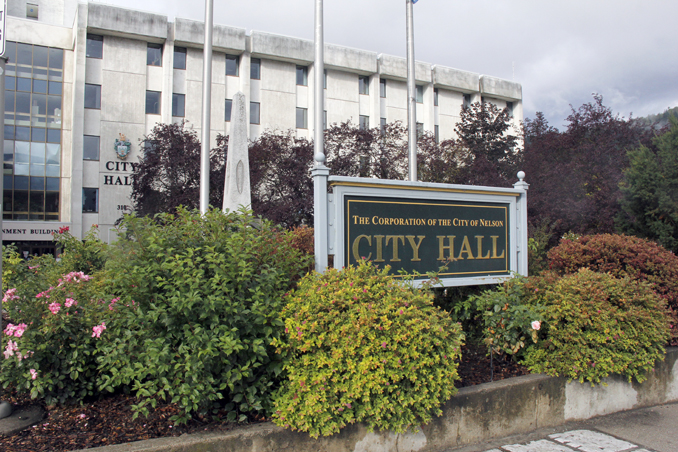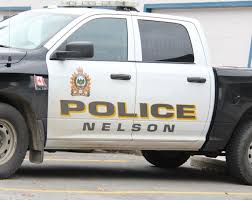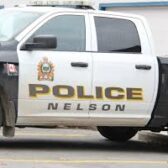Proposed municipal tax rate to exceed inflation rate as city delivers its latest taxation formula
Inflation has permeated every aspect of the economy and city property taxes are no exception.
The City of Nelson is proposing a four per cent hike to property taxes for the year, meaning — combined with water, sewer and resource recovery taxes — the overall municipal tax bill for the average homeowner in Nelson will rise by $110.
Chief financial officer for the city, Colin McClure, announced city council’s intention to levy a tax rate beyond the rate of inflation (3.4 per cent) during the budget open house on April 14.
However, McClure preferred to take the long view on the municipal tax field, noting there was a two per cent increase in 2019, a zero per cent increase in 2020 while the pandemic settled in, and a 1.75 per cent bump in 2021.
Inflationary costs from every conceivable angle and source forced the city to reach deeper, he said.
“When we looked at was happening for 2022 and some of the cost pressures we were seeing, it became pretty clear that a four per cent tax increase was what was needed,” McClure said. “And, when you combine that for the four years for this council, they are still within that two per cent range annually.”
Other city costs are going up. Earlier this year an increase to water and sanitary rates was approved to the tune of a combined 1.6 per cent — or an increase of $17 for a single-family home over 2021.
The annual rate for residential resource recovery rose from $75 per year to $100. It had been increased by $35 in 2020 to purchase the recycling blue bins for each home. For the second year in a row the additional money will be used for setting up for organics diversion.
For the average single family dwelling ($636,000, up from $504,000), the municipal property taxes for 2022 have jumped from $1,747 to $1,815, for a net change of $68. Water rates have risen on average (annual, after discount) by $7 to $379, while sewer rates have risen by $10 to $709 per year.
The total municipal tax take, including the resource recovery cost, will be $3,094 — up from $2,984 — on the average single family home, an extra $110 per year.
But the real story of this year’s tax tale is the rise in property assessments in Nelson, to the tune of an average of 26 per cent.
“It was a shock to open up your BC Assessment and find out it went up an average of 26 per cent,” said McClure, adding that a rise in assessment does not equal a corresponding rise in taxes. “That’s not what happens.”
McClure said it was council’s objective to maintain the same tax rate ratios as previous years — 74 per cent residential and 25 per cent commercial — in preparing the 2022–2026 Financial Plan and 2022 Tax Rate Bylaw using the fixed share approach.
The fixed share approach involves keeping the share of the tax levy collected from each property class constant, except where changes are due to non-market changes such as growth.
The result is the same 74 and 25 per cent residential and commercial ratio of the total municipal tax burden.
COVID benefits
The city benefitted financially from COVID-19, McClure said.
“The one thing that was beneficial to the city, to all municipalities … and not just the City of Nelson, was we were recipients of COVID Restart money at the end of 2020,” he said.
Under the provincial COVID-19 Safe Restart grant funding the city received $2.6 million at the end of 2020 from the province.
That was a significant amount of money, said McClure, but it wasn’t a lump sum to be used in a random way. The funds were meant to support revenue shortfalls, facility re-opening and operating costs, emergency planning and response costs, additional bylaw enforcement and protective services costs along with services for vulnerable persons.
The city used $750,000 of the money for revenue shortfalls — campground fees, parking meters — along with $650,000 in COVID-related expenses in 2020. There were some revenue shortfalls again in 2021 when Nelson was a hotbed for COVID-19 at the end of August, as well as arts and culture event shortfalls. The city handed out around $100,000 in grants to help organizations.
There is a budgeted plan this year to use grant funding for city internal business improvement and support — records management and digitization of city files — as well as overtime funding for the Nelson Police Department to deal with staffing challenges due to COVID-19, and upgrades to city buildings, said McClure.
External project funding ($154,000 remaining) and another round of the grant program for not-for-profit entities needing help to recover from COVID-19 is planned.
“It’s taken a lot out of this community with sports and culture and we want to make sure we continue to have those,” said McClure.
Five-Year Financial Plan
The plan includes the revenues and expenditures planned for 2022–2026 that have been presented to both council and the public.
All proposed expenditures, funding sources and transfers to or between funds must be included in the plan.
Section 165 of the Community Charter requires that a financial plan be adopted annually, by bylaw, before the annual Tax Rate Bylaw is adopted.
Legislation implemented in 2008 requires council to make explicit statements about each of the following:
• The proportions of revenue proposed to come from various funding sources;
• The distribution of property taxes among property classes; and
• The use of permissive tax exemptions.
Source: City of Nelson


























